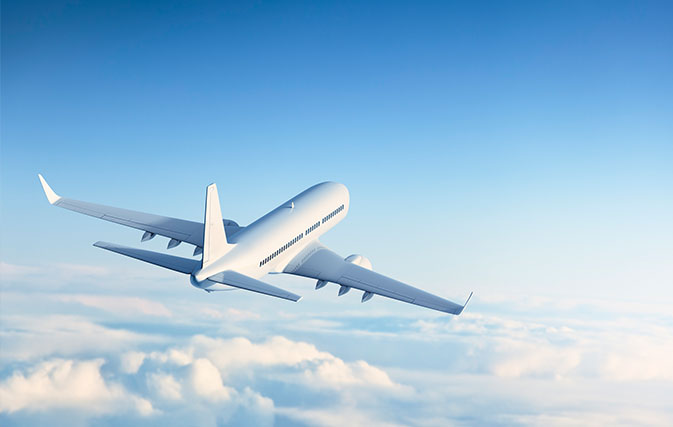MONTREAL — Just like every other sector in Canada, the travel industry is experiencing a skilled labour shortage.
And it’s especially frustrating for travel advisors who are suddenly besieged with booking requests – a good problem to have, after the past two and a half years – but lacking the staff to work with clients and take advantage of the momentum.
A recently released whitepaper from IATA, called ‘Skilling up for a Travel and Tourism Recovery’, offers insights from 750+ industry stakeholders into what skills are needed in the industry right now, to keep travel’s recovery going strong.
IATA’s key role in the airline industry includes training for the retail travel industry.
Says Himja Nanavati, Product Manager, Travel and Tourism Training for IATA: “In 1972 IATA Training conducted its first ever course on BSP and has been supporting the training needs of the travel and tourism industry ever since.”
She adds: “Now celebrating our 50th year of training, our flagship Travel and Tourism courses provide a comprehensive overview and in-depth practical skills, and have shaped careers of hundreds of thousands of aspiring professionals.”
Nanavati recently shared with Travelweek her message to the travel and tourism industry, highlighting pertinent stats and identifying how IATA can support the industry during this transition out of the pandemic. To download the whitepaper click here.
“After two years of enduring the COVID-19 pandemic, travel demand has returned along with the travellers. But where are the travel industry professionals?” says Nanavati.
“If the recent news of staff shortages, not just at airports, but also in hospitality, reservations and customer support is any indication, the travel and tourism industry needs to find a way to attract a large number of new employees, and quickly.
“As if this challenge is not enough, the industry also needs to gear up to train, grow and provide rewarding careers to those who chose to stay along with those who will enter the industry.
“To understand the scope of this challenge, let’s look at a few numbers.
“According to the World Travel and Tourism Council (WTTC), in 2019, there were 333 million people employed in the travel industry. At the end of 2020, 62 million people were either let go or changed their career voluntarily.
“It’s becoming clear that many of these people found new interests or took their careers in a new direction and are not coming back. In 2021, 18 million jobs were filled. That means 44 million jobs remain vacant in 2022.
“The latest Economic Impact Report by WTTC forecasts 5.8% growth in the travel industry’s GDP, creating 126 million new jobs that will need to be filled in the next 10 years.
“This is a huge challenge, not only due to the high numbers but also because of the need to replace lost expertise.
Focusing on essential skills for job readiness: how IATA can support the industry
“Historically, most people in the travel industry learn on-the-job. As enriching and practical as this strategy is, this method is not the most effective during the current acute staff shortage.
“The industry needs employees who are job ready. This raises additional issue of identifying skills needed to onboard and upskill newly hired employees quickly.
“Anticipating this need, in 2021 IATA created a travel industry skills map, which acts as a roadmap for employers and potential employees to understand the most essential skills required.
“After exhaustive research and analysis of national skill development frameworks from different countries covering job descriptions from the various labor departments, IATA prepared a skills map, which covers 12 job functions and 42 skills.
“To validate the research, we carried out a survey of travel industry veterans and experts. The survey focused on the most common job function – the travel advisor – and three career levels: beginner, intermediate and expert.
“From the 42 skills identified, the survey focused on the top 12 skills and rated them from essential to optional.
“The results of the survey largely confirmed our analysis and identified the top two essential skills for new travel professionals (beginners): first, the knowledge of travel formalities; and second, in-depth knowledge of different segments and forms of tourism.
“Communicating effectively, understanding customer requirements and planning itineraries emerged as the top three skills across all career levels.
“Following the survey, we also interviewed employers to understand their challenges and struggles.
“Our qualitative and quantitative analysis from the survey and interview are now detailed in IATA’s Skilling up for a Travel and Tourism Recovery | Whitepaper launched recently.
“The whitepaper also underlines the need for training and which actions employers are taking to address these training needs.
Supporting career paths of travel professionals
“In 1972 IATA Training conducted its first ever course on BSP and has been supporting the training needs of the Travel and Tourism industry ever since.
“Now celebrating our 50th year of training, our flagship Travel and Tourism courses provide a comprehensive overview and in-depth practical skills, and have shaped careers of hundreds of thousands of aspiring professionals.
“Our current research highlighted the acute need to develop more job-focused courses to help the industry quickly train and onboard new hires.
“To address this need, we launched three new career-focused diplomas.
“These diplomas address 11 of the top 12 skills, preparing students for careers in Travel Operations, Tour Production and MICE and Sales.
“Ranging from basic industry knowledge to expert-level knowledge in the chosen area, these diplomas are designed to make learning highly topical, interactive and enriching.
“The Travel and Tourism industry is facing an exciting opportunity of growth and demand.
“To leverage it and to fulfill our customers’ expectations, tourism boards and labor departments need to come together and quickly lay out learning paths that lead to exciting and fulfilling careers.
“After all, Travel and Tourism has all the ingredients for a fun, dynamic and rewarding career. Who wouldn’t want to work across different cultures, creatively fulfilling people’s dreams?”

